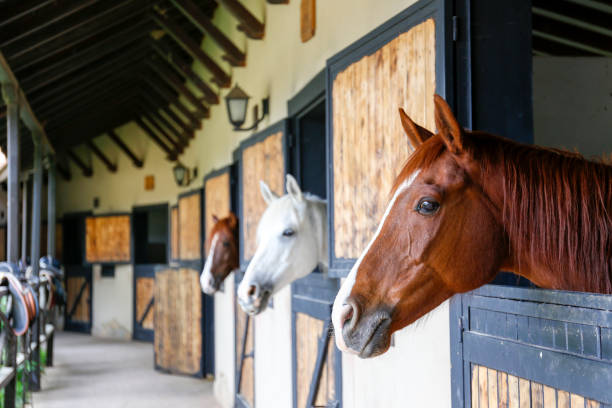Two horses in Goshen County, Wyoming, have tested positive for equine influenza, according to a recent report from the Equine Disease Communication Center (EDCC), the Horse reports.
An additional six horses on the same property are suspected of having the virus. All affected and potentially exposed animals are currently under quarantine as a precautionary measure.
Equine influenza is a highly contagious respiratory illness that affects horses, ponies, and other equids such as donkeys, mules, and zebras. The disease is spread through respiratory secretions, including those expelled during coughing or sneezing, as well as through direct horse-to-horse contact and contaminated objects such as tack, equipment, or even clothing.
Common symptoms of equine influenza include high fever, coughing, nasal discharge, lethargy, reduced appetite, and enlarged lymph nodes. Although the virus can spread rapidly among unvaccinated horses, many cases resolve with supportive care and appropriate management.
The EDCC, a nonprofit organization supported by industry donations, disseminates verified reports of equine infectious diseases through its Health Watch program. It emphasizes that outbreaks like this one highlight the importance of preventive measures, particularly vaccination and biosecurity protocols.
Vaccination remains a key defense against equine influenza. In fact, US Equestrian mandates proof of recent vaccination—within the past six months—for horses attending sanctioned events. Horse owners are encouraged to consult with veterinarians to ensure appropriate immunization schedules and to consider additional preventive measures depending on their horses’ exposure risks.
In addition to vaccination, good biosecurity practices are vital to preventing outbreaks. These include quarantining new or returning horses, disinfecting shared equipment, avoiding direct contact between horses from different barns, and monitoring animals for signs of illness, especially during travel or at equine events.
No additional cases beyond the eight reported in Goshen County have been confirmed at this time. The situation continues to be monitored by local veterinarians and health authorities. Horse owners in the region are urged to stay informed and remain vigilant in safeguarding their animals’ health.










The latest news in your social feeds
Subscribe to our social media platforms to stay tuned